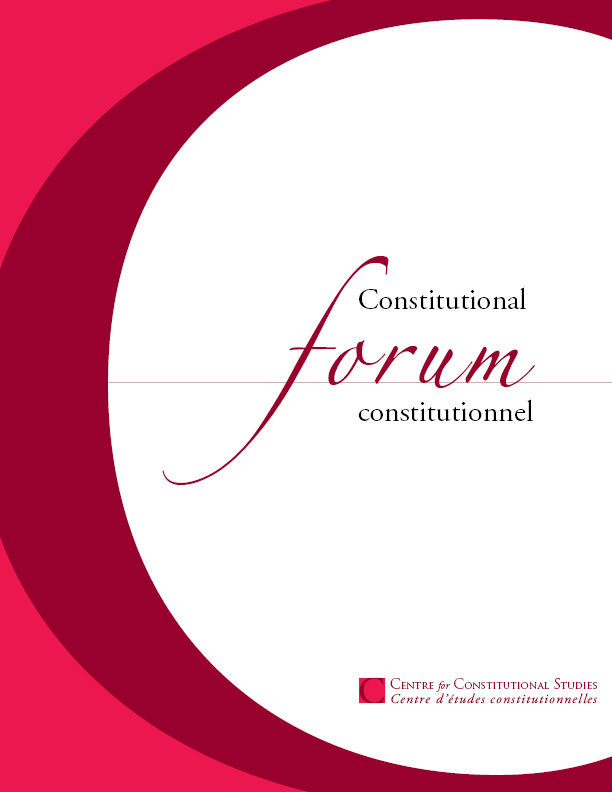Addressing the Senate’s “Triple-Deficit”: The Senate as Driver of its own Reform
DOI:
https://doi.org/10.21991/C94Q1TAbstract
Instead of arguing for or against a “Triple-E” Senate, I argue that, whatever one’s position on the Senate (short of abolition), the Senate suffers from a “Triple Deficit”: (1) an integrity deficit; (2) a legitimacy deficit; and (3) a democratic deficit. It suffers from an integrity deficit because of the reputation that the Senate has for not being a particular demanding job, and, more importantly, because of recent scandals that are a continuation of a history of scandal which the Senate has never taken concrete steps to address. The Senate suff ers from a legitimacy deficit because of the integrity deficit and because of its history of patronage appointments. Finally, it suffers from a democratic deficit for more than the obvious reason that it is unelected. As the Supreme Court stated in the Quebec Secession Reference, democracy as it has come to be understood in Canada means more than simply respect for majority will: “to be accorded legitimacy, democratic institutions must rest, ultimately, on a legal foundation. That is, they must allow for the participation of, and accountability to, the people, through public institutions created under the Constitution. The system must be capable of refl ecting theaspirations of the people.” Rather than allowing for public participation and accountability, the Senate has allowed itself to become isolated from the Canadian people. This sense of isolation has exacerbated the Senate’s democratic deficit and has led Canadians to view it as distant, elitist, and
out of touch with the people.
Downloads
Published
Issue
Section
License
Authors who publish with Constitutional Forum constitutionnel grant the journal the right of first publication, and agree to license the work under an Attribution-NonCommercial-NoDerivs (CC BY-NC-ND) that allows others to share the work for non-commercial purposes, with an acknowledgement of the work's authorship and initial publication in this journal, as long as no changes are made to the original work. Please use this format to attribute this work to Constitutional Forum constitutionnel:
"First published as: Title of Article, Contributor, Constitutional Forum constitutionnel Volume/Issue, Copyright © [year], Publisher"





